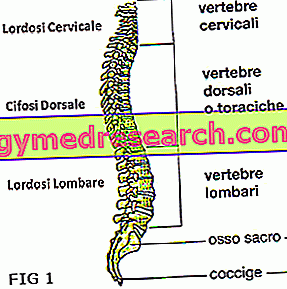Introduction
Food and breastfeeding: problems
Feeding during lactation is an essential factor in ensuring the correct production of milk in the nurse.

- Inadequate milk composition and consequent:
- Dissatisfaction with the nutritional requirements of the child
- Possible harmfulness due to contaminants etc.
- Inadequate taste of milk and consequent discontent with the child, who may refuse to eat.
Let's analyze the various case studies one at a time.
Food and milk composition
Mother's food: do they change the composition of milk?
Breast milk is a highly specific food. It cannot be replaced by any other food, except for the milk of other human nurses or for formulated milk. The composition of breast milk varies based on:
- Nutrition period (from colostrum to the sixth month)
- Nutritional status of the mother
- Subjectivity.
In addition to feeding the baby, breast milk selects its intestinal bacterial flora and programs, at least in part, the immune system; on the other hand, if we exclude the cases of very serious malnutrition, these last two characteristics hardly change when the maternal diet changes. On the contrary, the mother's diet can have a drastic effect on the exclusively nutritional profile, namely that of: water, carbohydrates, proteins, lipids, mineral salts and vitamins (perhaps even prebiotics).
Foods to Avoid
Foods to avoid because they do not meet the nutritional requirements of the child
Having all the useful nutrients, the mammary gland is perfectly capable of synthesizing milk in an autonomous and "intelligent" way. With this premise, given that the requirements do not change radically (in fact, compared to the pregnancy they mostly decrease), to avoid a nutritional deficiency in the child it would be sufficient for the nurse to eat abundantly. However, if during the gestation an increase in physiological weight occurs, it is natural that the opposite happens in lactation. In fact, the weight gain in pregnancy has the function of meeting the greatest future caloric needs (those of breastfeeding).
The adipose accumulation of the breast, thighs and buttocks is an essential source of cellular energy for the body and fatty acids to be poured into the milk. This means that, if the weight trend is "normal", the diet of the nurse must not be excessively caloric and / or fatty; rather, sufficiently rich in essential amino acids, essential fatty acids, water-soluble vitamins, fat-soluble vitamins and minerals (in particular calcium and phosphorus).
Returning to our dilemma: which foods should be avoided in the mother's diet to guarantee nutritional intake to the breastfeeding child? Simple, all those naturally poor, or artificially impoverished, of the aforementioned nutrients.
To avoid going into the details of each individual product, we will summarize the most important considerations below:
- Avoid low-calorie diets: they are those that bring less energy than normocaloric. In practice, we must not "try" to lose weight. The reduction of lipid reserves occurs automatically, without imposing a catabolic stimulus. It is even advised to consume from 450 to over 500 kcal more than normal per day. Note : even if you really want to recover your silhouette, delaying the diet for a few months to guarantee the health of the child is the only reasonable choice. Consequently, it is advisable to exclude all dietary slimming foods; for example, it is advisable to limit the replacement of meals with bars, shakes, other packaged dietetic foods, light etc.
- Avoid diets that are based on a few meals: the nurse must introduce the energy supply spread in about 6 daily meals, so as to promote lactation
- Avoid exclusion diets:
- Avoid diets that exclude fruit and vegetables: they are the foods that make the most of: water, potassium, vitamin C, pro-vitamin A, vitamin K and folic acid. They contribute significantly to complete the need for: vitamin E and polyunsaturated essential fatty acids alpha-linolenic acid (omega 3) and linoleic acid (omega 6). Note : the fibers and probably most of the polyphenolic antioxidants do not pass through the mammary gland and do not reach the milk, but are nevertheless essential for the health of the nurse
- Avoid diets that exclude seeds: starchy ones, in addition to providing the carbohydrates necessary for energy intake, help to meet the needs of: some B vitamins (such as thiamine B1 and niacin B2), magnesium and selenium
- Avoid diets that exclude products of animal origin: meat, fish, eggs, milk and derivatives are the main sources of high biological value proteins (the nurse must take at least 17g of protein more than normal per day), essential polyunsaturated fats of the omega 6 group and zinc. To avoid this deficiency without making particular dietary changes, it is sufficient to keep at least one of these in the diet. In addition, the meat provides large quantities of bio-available iron (necessary in quantities much higher than normal, or 18 mg / day) and almost all the B vitamins; the fish is also rich in iodine, vitamin D and active metabolites of alpha linolenic acid (omega 3). Eggs are a concentrate of almost all essential nutrients for humans but, being rich in cholesterol, it is better not to exceed. The group of milk and derivatives is also an indispensable source of B vitamins (especially B2 riboflavin), calcium (necessary in quantities much higher than normal, or 1200 mg / day), phosphorus and vitamin A
- Avoid diets that exclude seasonings of fat origin: good quality vegetable oils, like extra virgin olive oil, in addition to covering most of the essential fatty acid requirements, are a natural source of vitamin E.
Foods to avoid because they can contaminate your child's diet
In reality it is a set of foods that "could" release some molecules into the milk (also called toxins). However, with regard to those available on the market, these are safe foods, not potentially harmful, provided they are in adequate portions and with a frequency of consumption. Others have a higher risk of contamination and should be avoided:
- Avoid mushrooms from private collection: the toxins of certain fungi, toxic and poisonous, can pass into the milk even before the mother accuses the first symptoms
- Avoid all products collected or of unsecured origin, especially foreign ones: dried fruit (oil seeds) and certain cereals or derivatives are more involved. They can be contaminated with very dangerous molds for the liver; we have no guarantee that these are retained by the mother's body and may come into the milk
- Avoid consuming fruits and vegetables or other foods of unknown domestic origin: mostly, the autonomous crops are not subjected to any control. Given the danger linked to the contamination of the aquifers, of the soils and of the river courses (with which the productions are often irrigated), it cannot be excluded that these foods contain excessive doses of: nitrates and nitrites or nitrosamines, dioxins, heavy metals, pesticides (such as the dreaded herbicide glyphosate, insecticides, lumachicides, etc.).
- Avoid consuming eggs, milk, meat and fish of dubious origin: it is certainly frustrating but inevitable. Domestic breeding and creatures hunted or fished are not subjected to any analysis. Many of them may be affected by parasitosis or affected by the accumulation of dioxins (see the problem of dioxin in eels from Lake Garda) or other. Note : it is necessary to pay particular attention to offal
- Avoid a diet based exclusively on packaged foods, therefore rich in additives: we know that all the products sold are subjected to very strict controls. On the other hand, these do not take into account that the maximum tolerable dose of each additive (a limit strictly respected by all foods on the market) can easily be exceeded by the sum of the individual products consumed. This is why the recommendation to avoid the excessive use of light foods and beverages, packaged in general, and synthetic sweeteners (to be used in quantities not exceeding 7 g / day) remains valid.
- Avoid supplements and drugs, as well as herbal remedies, if not for medical purposes: the active ingredients of these products can infiltrate the milk and affect the baby's body. A baby's body, especially referring to the intestines, liver and kidneys, is not as efficient as it is in adulthood
- Avoid alcohol, especially at the time of feeding: alcohol appears to pass the breast barrier easily and contaminate the milk. For a time it was believed that certain spirits, especially dark beer, could increase lactation. In reality it is exactly the opposite. One or two glasses of red wine are allowed per day, strictly with meals, possibly far from feeding
- Avoid foods rich in nerves: for example large amounts of coffee, fermented tea, guarana, ginseng and cocoa, or energy drinks, which contain significant amounts of exciting methylxanthines that would inevitably end up in milk
- Avoid foods that are NOT balanced or contain certain excess nutrients: in particular, it is recommended to avoid foods that are too salty, sweet and rich in cholesterol, saturated or hydrogenated fats, acrolein, acrylamide, formaldehyde, polycyclic aromatics in general, etc.
- Avoid foods that are more likely to have an allergic reaction: in theory, the peptide segments involved in allergic reactions do not reach milk; on the other hand, scientific research shows controversial results in the correlation between the presence of food in the mother's diet and the corresponding manifestation of food allergy in the child. We know that some food allergies are periodic, others definitive, and that the predisposition is hereditary but not necessarily linked to the same allergen. In this regard, every allergist, obstetrician and pediatrician expresses a disagreeing opinion with that of others. For safety, in the diet of an Italian nurse, it might be reasonable to exclude crustaceans, nuts and soy
- Avoid, at least periodically, the foods to which the "suspects" feed: it can happen that, by inserting certain foods in the mother's diet, the child refuses the feed or shows a certain gastrointestinal complication; the products involved are those taken by the mother in the 2-6 hours before. Statistically, the following foods more often cause adverse reactions: milk, yogurt, cheese, ricotta, soy, wheat, eggs, nuts and corn or corn syrup. In this case, after identifying them, it is advisable to exclude these products one at a time by gradually reinserting them. It is however essential to consult your doctor before eliminating food from your diet.
Flavor and Odor
Foods to avoid because not liked by the child
If the infant does not eat, he does not grow or grow bad or weakens.
At one time it was believed that the child could suffer negatively the presence of strongly aromatic or gustatory molecules in the milk. It was therefore common practice to eliminate:
- Spices dried from roots, bulbs, leaves, seeds, fruits, roots or bark: for example turmeric, curry, paprika, chilli, ginger, cumin, cinnamon, nutmeg, fennel seeds, l anise etc.
- Essential oils from the same products: the same is true for spices
- Fish oil: used as a supplement of vitamin D and omega 3, it was assumed that it could give the milk a strong hint of peach products
- Various condiments: for example soy sauce; produced by soy fermentation
- Large quantities of fresh aromatic or spicy vegetables such as: onion, garlic, leeks, spring onions, chilli, black pepper, horseradish, ginger etc.
In reality, today it is advised NOT to exclude any food from the diet and to ensure that this is quite similar to the customary nutritional regime of pregnancy. This because:
- The child is quite used to the tastes of the normal diet because he spends nine months in contact with the amniotic fluid, also present in the oral cavity of the creature. Also the composition of the latter is related to the feeding of the expectant mother
- A milk that often changes in taste and taste, in a delicate and not excessive way, increases the chances of the child easily accepting various foods during weaning and during growth.
Nevertheless it is shown that, statistically, infants are more frequently opposed to certain foods than highs.
Children complain more often with certain foods than others: which ones?
They are especially involved:
- Chocolate
- Some spices: cinnamon, garlic, curry, chilli
- Citrus fruits and their juices: oranges, lemons, limes and grapefruits
- strawberries
- Kiwi
- Pineapple
- Vegetables that tend to increase intestinal swelling: onion, cabbage, garlic, cauliflower, broccoli, cucumber and peppers
- Fruits with a laxative effect: especially cherries and plums.



